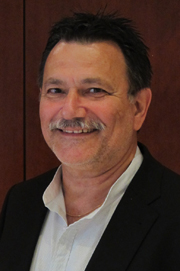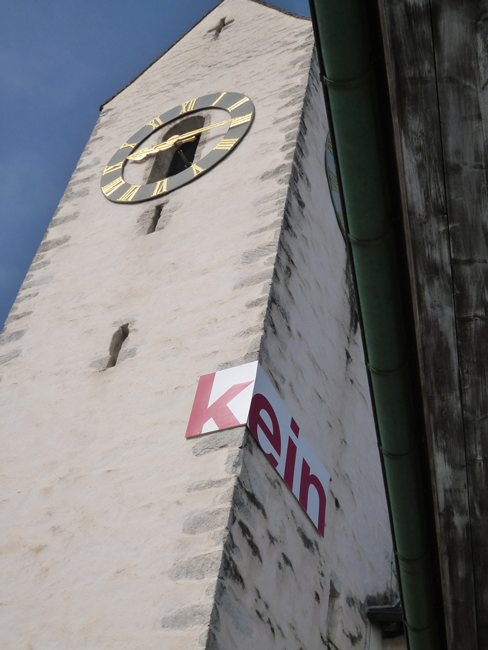KISSLING, Dr Bruno
Switzerland, family doctor

Where are you currently working?
For 31 years I have been working as a family doctor in the same solo doctor practice in the city of Berne, the capital of Switzerland.
I have cared for many of my patients for decades. Together we have undergone many illnesses, or crises, leading to increasing mutual confidence and trust, within a long-lasting doctor-patient relationship. Getting older, we struggle together against a rising number of chronic diseases.
Despite their illnesses, many patients feel really well. “Thank you, I feel fine, and how are you, doctor? Take care of yourself. We still need you. You know.” Many of my patients have passed away, most of them at a very advanced age. Of course, I care also for younger patients, but they need my help only occasionally.
What other interesting work have you done or do you do?
After more then 30 years I still like being a family doctor. A very important contribution to maintain this delight, is a good balance between my profession, my private life, and other occupations and interests.
I was a member of the executive board of our Swiss Society of General Practice for eight years and also the Swiss delegate to WONCA (2000 – 2009). In 2009, Switzerland organised the WONCA Europe conference, in Basel, and I was the president of the host organizing committee.
I’m teaching medical students in my practice. I like to see their development from a student to a doctor.
Further, I’m a co-founder and co-editor of our Swiss Journal of Family Medicine www.primary-care.ch . It is very satisfying to work on this journal, together with an enthusiastic team of editors, for more than ten years now.
What is it like to be a family doctor in Switzerland?
To be a family doctor in Switzerland is one of the best professions - like everywhere in the world. The work with patients is very satisfying. However, there are some stressful situations - like everywhere, I suppose.
Switzerland has a highly developed and very expensive health system. It is privately organised but strongly regulated, by law. Accessibility, accountability, equity and solidarity are legally guaranteed to all citizens. No referrals are needed for access to secondary and tertiary care. To have private health insurance is mandatory. People with low income are financially supported to pay the fees. Managed care is an option to better control the system.
About 25% of all doctors are family doctors. The majority of us work in a one or two doctor practices, with a rising number of group practices. All practices have a laboratory and ECG; a lot of them have an x-ray and spirometry; many have ultrasound.
The number of family doctors is literally “crashing”. Our mean age is about 57 years. The interest of young doctors to become a family doctor has been low for many years. With the help of the Swiss association of young doctors (which was founded 2006, under the influence of the ‘Vasco da Gama Movement’), and strong political initiative, family medicine gets stronger and the number of family doctors is rising slowly.
Only since 2005, has Switzerland had institutes of family medicine and therefore an academic status.
How did you get chosen to be in the movie 'At the Doctor's Side' and what did you like about doing it?
more about the trilogy "At the doctor's side"
Sylviane Gindrat the filmmaker of ‘
At the Doctors Side’ and I, have known each other for many years. We are members of the same quality circle, where Sylviane – she also studied social anthropology and film sciences - got inspired to make her film to visualize the complexity and quality of family medicine.
As a first step she visited my clinic to learn, if the patients would accept a person with a camera being present within a real consultation. Sylviane liked my kind of consultation. After casting visits of 30 other family doctors in different parts of Switzerland, she favoured me together with five other doctors, for the film roles.
It was easy for me to accept the role of a protagonist in her film for several reasons:
- I felt good about her presence in my consultation, during her casting visit.
- My patients gave her a warm reception.
- Having seen her two other award winning films I knew how respectfully and empathetically she filmed the protagonists.
- And furthermore, I’m a curious person and I won’t miss the chance to participate at this unique endeavour.
I’m not an actor. I cannot play roles following a script. I’m a protagonist in a documentary and can only “play” myself with my own behaviour, my own authenticity.
Furthermore I learnt to remain authentic even when being observed. This the main precondition for a protagonist in a documentary. And Sylviane found that my appearance, mimics, presence, voice and behaviour etc are ‘filmogenic’. I cannot estimate this. I trust her. But looking at the film you can judge if Sylviane is right. It is my first movie and it will remain my only one, I suppose.
What are your passions outside work?
Writing is another passion. About 20 years ago, I discovered my capability and my love to write. I was really surprised by that. Before, I was convinced that I was a bad writer and I had no reason to change that idea.
Besides political and professional essays, I started to write short poems with 20 to 35 words each, one word on each line. These poems start with a simple impression or feeling, with an observation in nature or in society, with a sudden inspiration or any idea. And these first thoughts get interwoven with further and deeper reflections on different philosophical levels. These little poems with their few words are condensations of my reflections about life. They become like the eye of the needle to the world of the reader, who can continue the reflection with his own thoughts.
Of such poems, I created text sculptures for an exhibition, together with my sister who is a painter. People could walk through 1000 words getting touched virtually by the words and conversely, being able to touch the words physically. Recently I did another art exhibition in an old Roman church, together with a friend who is a painter. We created some very abstract objects to the theme of ‘seeing differently’. The next planned art exhibition will play with the ‘aesthetics of the ennui’.
You see there is no worry for me to be bored in the future…
Editor's note: below is one of Bruno's poems and at right part of an art installation using the poem. When asked to explain it to the WONCA editor, Bruno comments: "It reflects the k-ein: kein means 'no one' - ein means 'one' . The poem can not be translated in other languages, because this dense words play often with different meanings of the words. Read from top down it gives a snse but there is also sense or different sense or the contrary, if you start to read it anywhere… "
 k
k
ein
ander
wort
reicht
uns
die
hand
nimmt
mir
die
ruh
bringt
dich
ins
spiel
trägt
uns
davon
in
ewiges
vergehen
werden
to contact Bruno Kissling
[email protected]
Berne, Switzerland